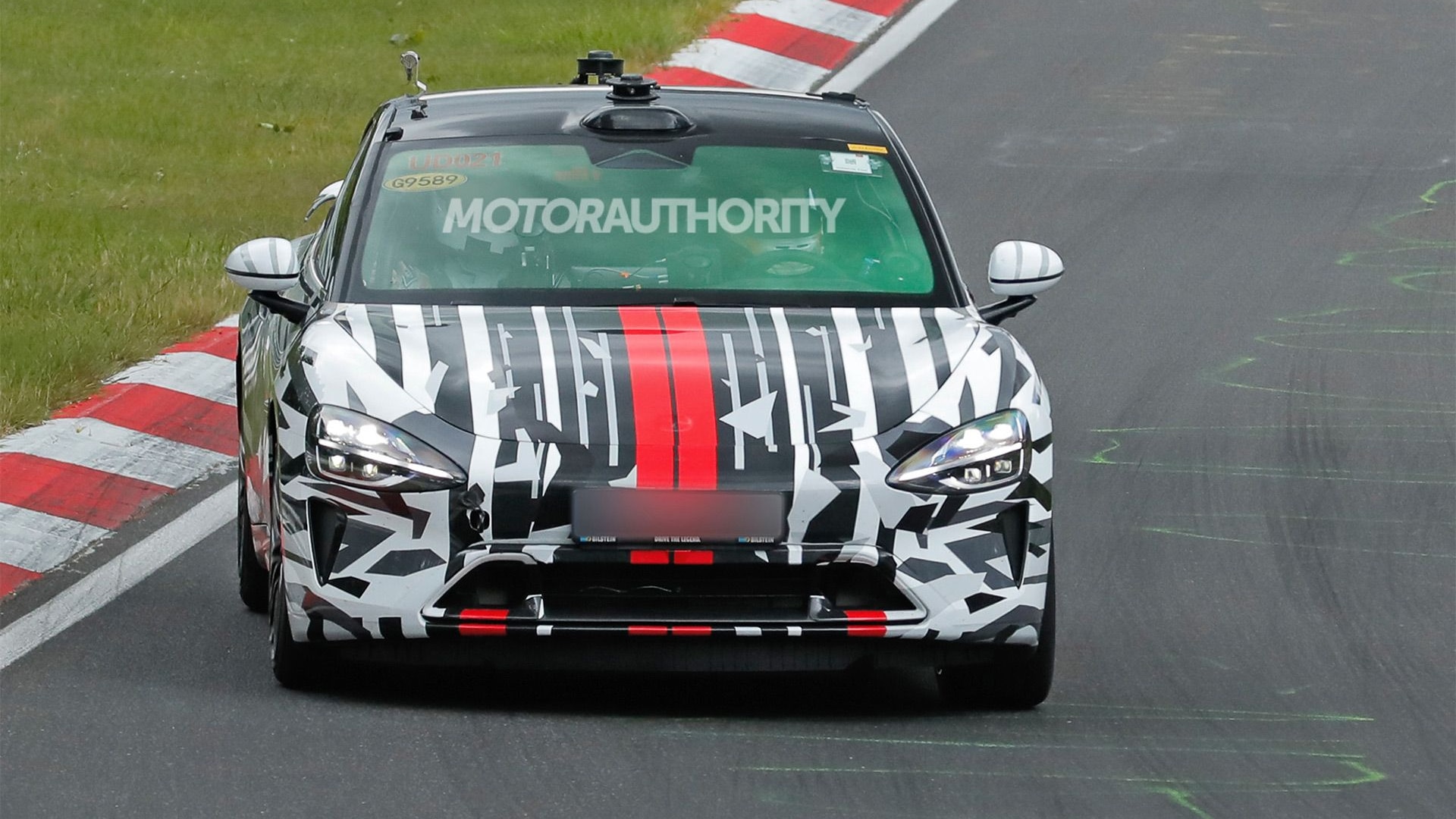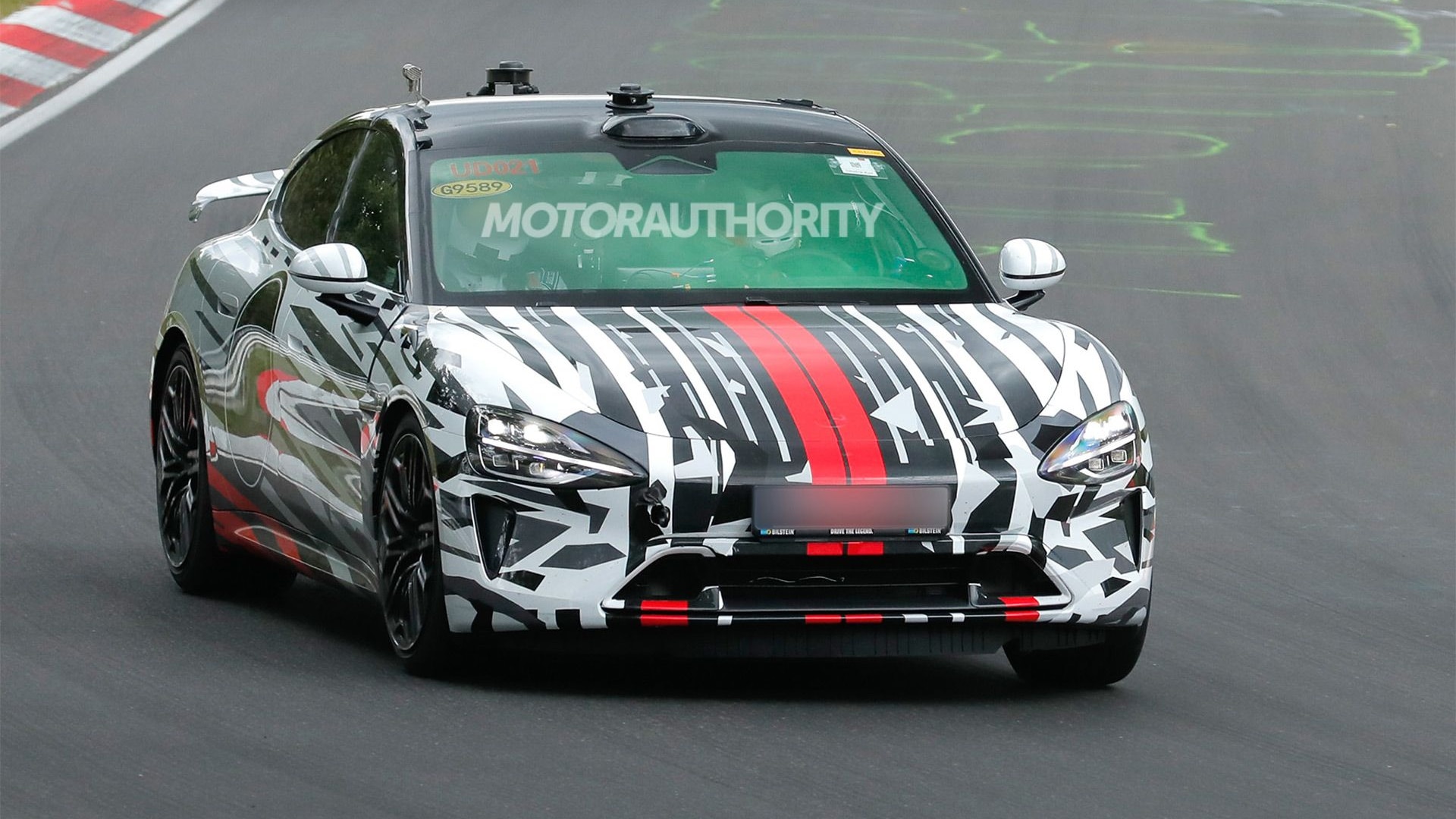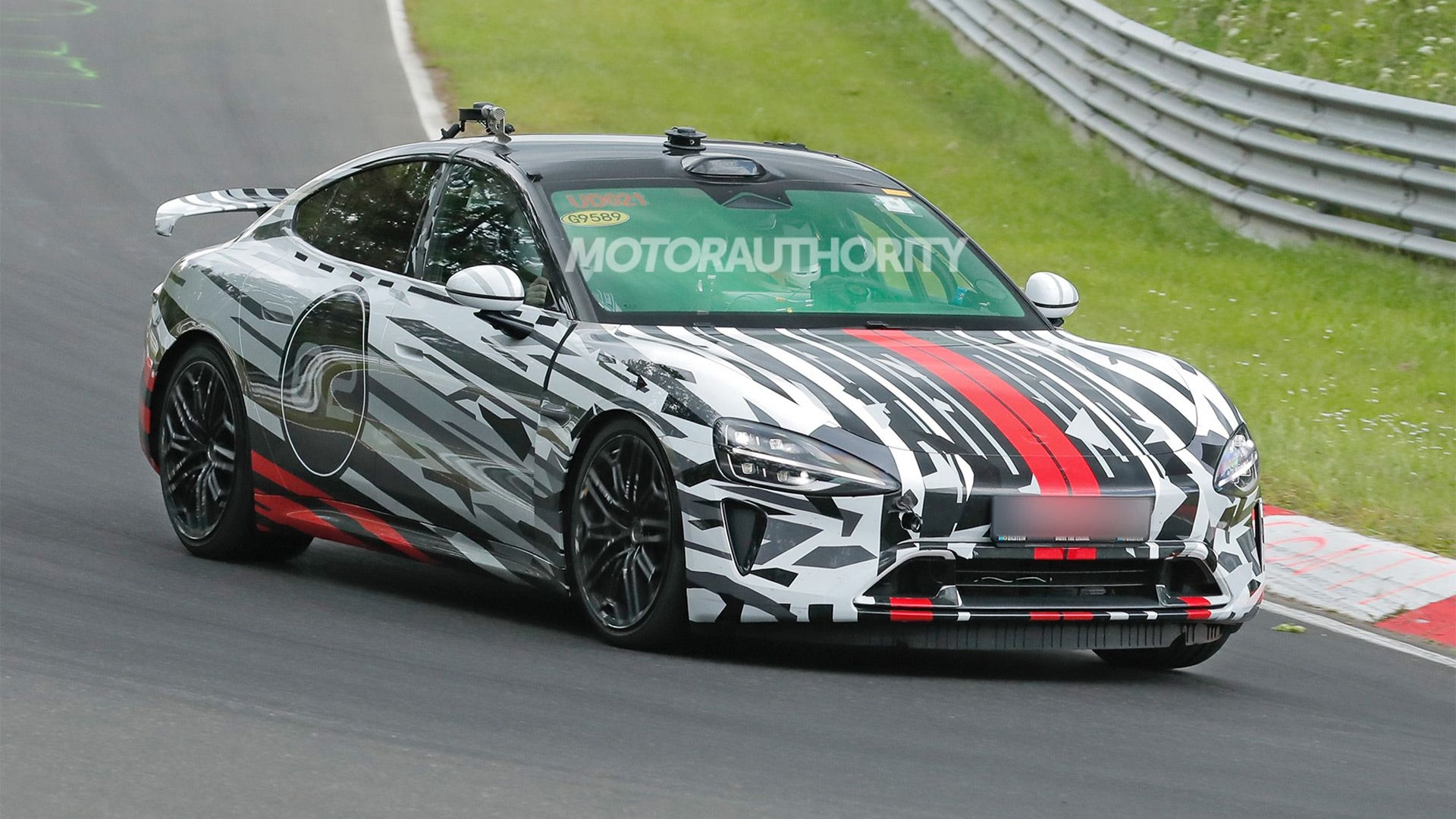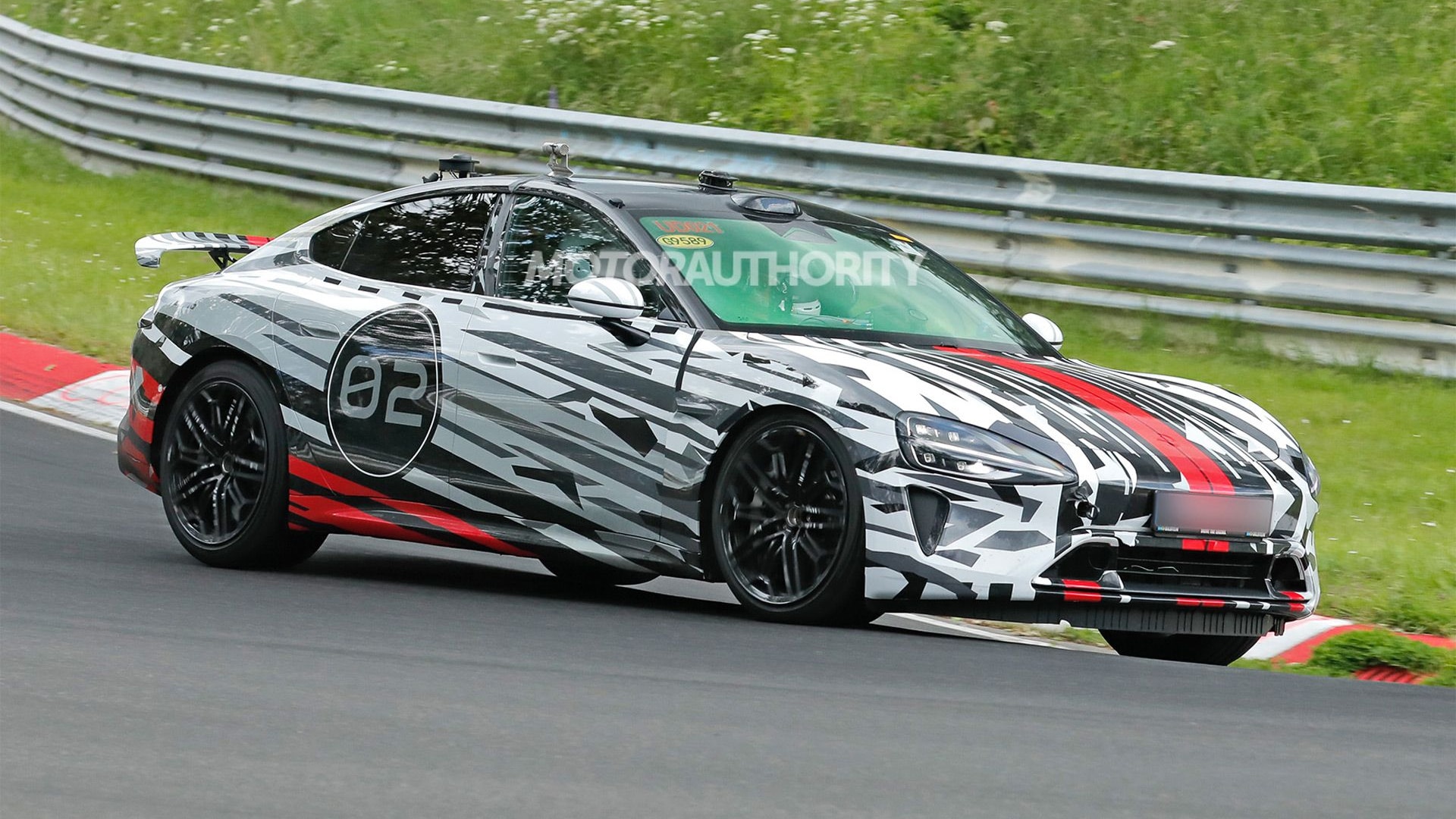- A Xiaomi SU7 prototype has been testing on the Nürburgring
- The prototype might be a new track-focused iteration of the Chinese Porsche Taycan competitor
- Xiaomi might be looking to tackle the Porsche Taycan's 'Ring lap time
Smartphone giant Xiaomi came out with its first car late last year in the form of the SU7, a sleek electric sedan that shares a passing resemblance to the Porsche Taycan.
But rather than aim low for its first automotive endeavor, Xiaomi looks to be aiming right for the top.
Engineers from the Chinese company have been spotted testing a prototype at the Nürburgring for what's thought to be a new track-focused version of the SU7, and the test vehicle looks like it has what it takes to keep up with the Taycan on the racetrack.
Video footage from Car Spy Media shows the hardcore SU7 traveling very fast through some of the Nürburgring's sectors. This suggests the version being tested may pack more horsepower than the flagship 664-hp grade announced at the SU7's launch.
The prototype is also fitted with a fixed rear wing, whereas previously the SU7 has only been shown with a retractable rear wing.
The 1092-hp Taycan Turbo GT launched for 2025 also has a fixed rear wing, and with its available Weissach package that removes the rear seats, the car managed to lap the 'Ring in a time of only 7:07.55. That's painfully close to the 7:05:298 lap record for production EVs at the 'Ring set by the Rimac Nevera hypercar.
The biggest battery offered in the SU7 is a 101-kwh unit, though Xiaomi has indicated it plans to offer bigger battery options. These will be approximately 132 and 150 kwh in capacity, and it's possible one of these is also fitted to the prototype.
The regular SU7 is currently available in China only, where it is priced from about $30,000, or less than what a Tesla Model 3 retails for in that market. That's for a single-motor rear-wheel-drive grade with 295 hp. Upgrading to the dual-motor all-wheel-drive grade with 664 hp costs roughly $41,500. Given the sharp pricing, which Xiaomi CEO Lei Jun told CNBC in a March interview meant the company was losing money on each example sold, the whole allocation for 2024 was gone in about 24 hours after the start of sales.






